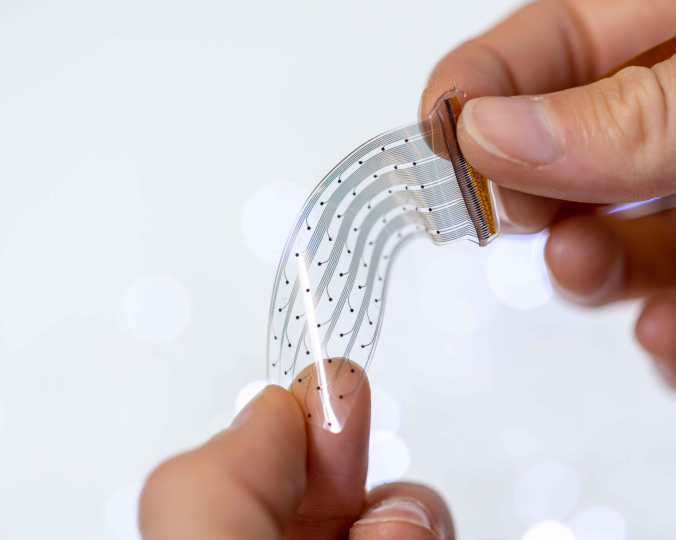Soft neural implants
Bioelectronic interfaces that conform to the nervous system

Goal | Microfabrication strategies to enable new biomedical applications through more precise communication with the nervous system
Status | Completed
Area of Research | Brain-computer-interface technology
Partners | Neurosoft Bioelectronics, EPFL
Lead | Nicolas Vachicouras

The convergence of materials science, electronics, and microfabrication strategies
Neural implants are medical devices placed inside the body to interact with the nervous system. They can be used to diagnose or treat neurological disorders or trauma by electrically modulating or recording signals from the brain, spinal cord or peripheral nerves. Today, tens of thousands of people experience relief from conditions such as chronic pain or epilepsy thanks to such devices implanted in their nervous system.
However, the long-term success of neural interfaces is dependent on addressing key challenges associated with matching soft living tissues and stiff electronics, and improving biointegration.

The Laboratory for Soft Bioelectronic Interfaces (LSBI) at EPFL has introduced a new class of soft neural implants made entirely from elastic materials using wafer-scale manufacturing processes inspired by the thin-film electronics industry. Designed to seamlessly interface with the surface of neural tissue, the soft implants are made of stretchable conductors embedded in silicone and covered at the electrode sites with a stretchable coating to allow for efficient stimulation and recording.
Translation to the clinic
The implementation of these medical grade electrodes in a clinical setting requires their certification for human use. The Wyss Center has partnered with the LSBI to facilitate translation of soft electrode arrays to the clinic and support the launch the startup Neurosoft Bioelectronics to commercialize this technology.
The team is working on verification and validation of the technology including biocompatibility, sterilization, packaging and electromagnetic compatibility of the devices for brain recording and stimulation applications. The final step following certification for human use will be a clinical trial in collaboration with local hospitals, towards further technical de-risking of the technology.